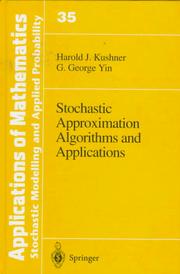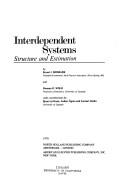| Listing 1 - 10 of 76 | << page >> |
Sort by
|
Book
Year: 2019 Publisher: Golden, CO : National Renewable Energy Laboratory,
Abstract | Keywords | Export | Availability | Bookmark
 Loading...
Loading...Choose an application
- Reference Manager
- EndNote
- RefWorks (Direct export to RefWorks)
Book
ISBN: 9819982774 Year: 2023 Publisher: Singapore : Springer,
Abstract | Keywords | Export | Availability | Bookmark
 Loading...
Loading...Choose an application
- Reference Manager
- EndNote
- RefWorks (Direct export to RefWorks)

ISBN: 038794916X Year: 1997 Publisher: New York (N.Y.): Springer
Abstract | Keywords | Export | Availability | Bookmark
 Loading...
Loading...Choose an application
- Reference Manager
- EndNote
- RefWorks (Direct export to RefWorks)
Book
ISBN: 9788857508498 Year: 2011 Publisher: Milano : Mimesis,
Abstract | Keywords | Export | Availability | Bookmark
 Loading...
Loading...Choose an application
- Reference Manager
- EndNote
- RefWorks (Direct export to RefWorks)
Prediction (Logic) --- Stochastic approximation. --- Approximation stochastique --- Aristotle.
Dissertation
ISBN: 9051709919 Year: 2005 Publisher: Rotterdam : Erasmus universiteit,
Abstract | Keywords | Export | Availability | Bookmark
 Loading...
Loading...Choose an application
- Reference Manager
- EndNote
- RefWorks (Direct export to RefWorks)
Book
Year: 1999 Publisher: Cambridge, Mass. National Bureau of Economic Research
Abstract | Keywords | Export | Availability | Bookmark
 Loading...
Loading...Choose an application
- Reference Manager
- EndNote
- RefWorks (Direct export to RefWorks)
A wide range of empirical applications rely on linear approximations to dynamic Euler equations. Among the most notable of these is the large and growing literature on precautionary saving that examines how consumption growth and saving behavior are affected by uncertainty and prudence. Linear approximations to Euler equations imply a linear relationship between expected consumption growth and uncertainty in consumption growth, with a slope coefficient that is a function of the coefficient of relative prudence. This literature has produced puzzling results: Estimates of the coefficient of relative prudence (and the coefficient of relative risk aversion) from regressions of consumption growth on uncertainty in consumption growth imply estimates of prudence and risk aversion that are unrealistically low. Using numerical solutions to a fairly standard intertemporal optimization problem, our results show that the actual relationship between expected consumption growth and uncertainty in consumption growth differs substantially from the relationship implied by a linear approximation. We also present Monte Carlo evidence that shows that the instrumental variables methods commonly used to estimate the parameters correct some, but not all, of the approximation bias.
Consumption (Economics) --- Stochastic approximation. --- Tax incidence. --- Mathematical models.

ISBN: 0720430429 0444100512 9780720430424 Year: 1970 Publisher: Amsterdam North-Holland
Abstract | Keywords | Export | Availability | Bookmark
 Loading...
Loading...Choose an application
- Reference Manager
- EndNote
- RefWorks (Direct export to RefWorks)
Book
ISBN: 0387963057 3540963057 1461386454 1461386438 9780387963051 Year: 1986 Publisher: New York (N.Y.): Springer
Abstract | Keywords | Export | Availability | Bookmark
 Loading...
Loading...Choose an application
- Reference Manager
- EndNote
- RefWorks (Direct export to RefWorks)
Book
ISBN: 0412158701 Year: 1979 Publisher: London Chapman and Hall
Abstract | Keywords | Export | Availability | Bookmark
 Loading...
Loading...Choose an application
- Reference Manager
- EndNote
- RefWorks (Direct export to RefWorks)
Book
ISBN: 0818605979 Year: 1985 Publisher: Washington (D.C.) IEEE computer society press
Abstract | Keywords | Export | Availability | Bookmark
 Loading...
Loading...Choose an application
- Reference Manager
- EndNote
- RefWorks (Direct export to RefWorks)
| Listing 1 - 10 of 76 | << page >> |
Sort by
|

 Search
Search Feedback
Feedback About UniCat
About UniCat  Help
Help News
News